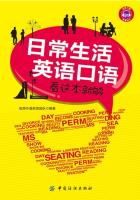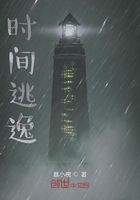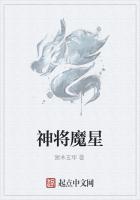Finally I decided to address the ChangGuang top management, although SunLi disagreed. She feared that open words would be counterproductive, but I said: “What do we have to lose, now already we don’t have any business any more!” So we went. Of course, I did not tell the head of the company, “Your production managers want to be bribed.” Instead, I asked if he knew that their production line running with our process chemistry had been shut down for months, and therefore all products were further processed on external contracts, though that could be done internally a lot cheaper (we knew the external price and the internally calculated direct costs).
He did not know it. He summoned his production managers into his office and questioned them. They claimed that our quality was not sufficient and this or that customer had complained. I made clear that this was not the case, and I called for an objective comparison test. When this was done under our supervision, it was clear that our quality was much better.
A short time later, the process line with our processing chemistry was put back into operation. In the following time it became clear that our quality was much more solid and better, currently we even are in the process of replacing the competitive chemistry in the external facility, that was preferred by the production managers, by our chemistry. The resistance against getting drawn into the bribery system is paying off. The top management is only from Taiwan, the middle management is composed largely of mainland Chinese. It was a sleight of hand which has been successful. ChangGuang develops ever and better and could soon become our second largest customer.
The widespread active and passive bribery is a terrible disease in China. I know some business people who participate actively or passively, and I know they are not too happy with it but do not know how to get out. We have discussed this issue many times in my Sunday football team. We all have to agree: It’s sick and a serious weakness of the Chinese economy and politics.
During the second year of my work in China I get from our customer service technician in East China for the umpteenth time in the middle of the night a call: “Our process line in ShuXin (曙鑫) has just been shut down again, I can bear it no more!” With this big customer, who is today (unknowingly) competing with ChangGuang for 2nd and 3rd place in our customer ranking, features every few weeks a sudden drop in the quality of the final product, as if by magic, then the facility is stopped. Our technician there, ChuLuo, is exhausted, he will be leaving us soon, he cannot stand the stress any longer.
Analyses reveal that there are spontaneous glitches of one parameter. It is mysterious why and how this would happen, and why so sudden and so irregularly? Any time then we need to fill thousands of litres of fresh chemicals into the process line, at tremendous cost, not only because of the materials, but also because we often need to quickly obtain supplies by air from Germany to ShangHai. This is particularly expensive because it is “hazmat”, hazardous material. In the night suddenly a realisation matures in my brain: This must be sabotage. Someone fills a certain harmful chemical into our tanks, thereby flipping the process.
I’m starting to calculate and slap on my brow: Why did I not think of that before? It is obvious that by the process itself, this parameter can never get out of hand, let alone so quickly! During the night I write my thoughts and calculations in an e-mail, the next day I let my team in Germany recalculate and run experiments. The result is evident, my nocturnal presumption is confirmed. The deviation can only have been caused from the outside.
As with ChangGuang the company is controlled from Taiwan and run largely by Taiwanese in eastern China, and as well, the middle management consists almost entirely of mainlanders. In both cases, our distributor was of the opinion that trade could only flow through his company, this customer hat to be handled “with utmost care”, me, being German, could not do that, and even with them as dealers it was less than certain whether we would gain those customers. I did not give in to that, in either cases I assumed the direct sale without intermediaries. In both cases, we are confronted with massive extortion, here, at ShuXin, even with sabotage!? This shows me what the distributor had in mind when claiming that “this customer had to be treated with utmost care!”
Once again all of the consultants tell me: “By no means mention the suspected sabotage frankly, this contradicts the way how to approach such problems in China, and – you can lose everything there!” And once again I answer, “What else do we have to lose? We cannot every few weeks fly thousands of litres of chemicals to ShuXin for free, relaunch the process line and stare at the next event to occur! If this should go on, we will anyway have to cut the business relationship!” In any case we had to make a decision, either we would pull back from ShuXin, or I would grasp the thistle of ShuXin.
And that was what I did. I talked to the responsible production director. He has worked many years in the U.S., we can discuss in English. He was beside himself with rage. We screamed at each other (in English). I told him clearly and openly. “If these events are not going to stop, we cannot provide any more chemicals.” I laid open all our calculations, explained why it could not be anything but sabotage (just never calling it “sabotage” for which there also is a Chinese word, but “event”), he became quieter and quieter, pensive and more pensive, the more I revealed to him the analytical data and my calculations.
In this first decisive and open discussion we agreed that we would monitor the process line for four weeks, 24 hours around the clock. And all parameters were to be analysed at regular intervals. We hired two guards (employees of a company we are friends with), to whom I inculcated: Not even to the bathroom you are allowed during the shift! The process line must NEVER, not one minute, be left alone!














